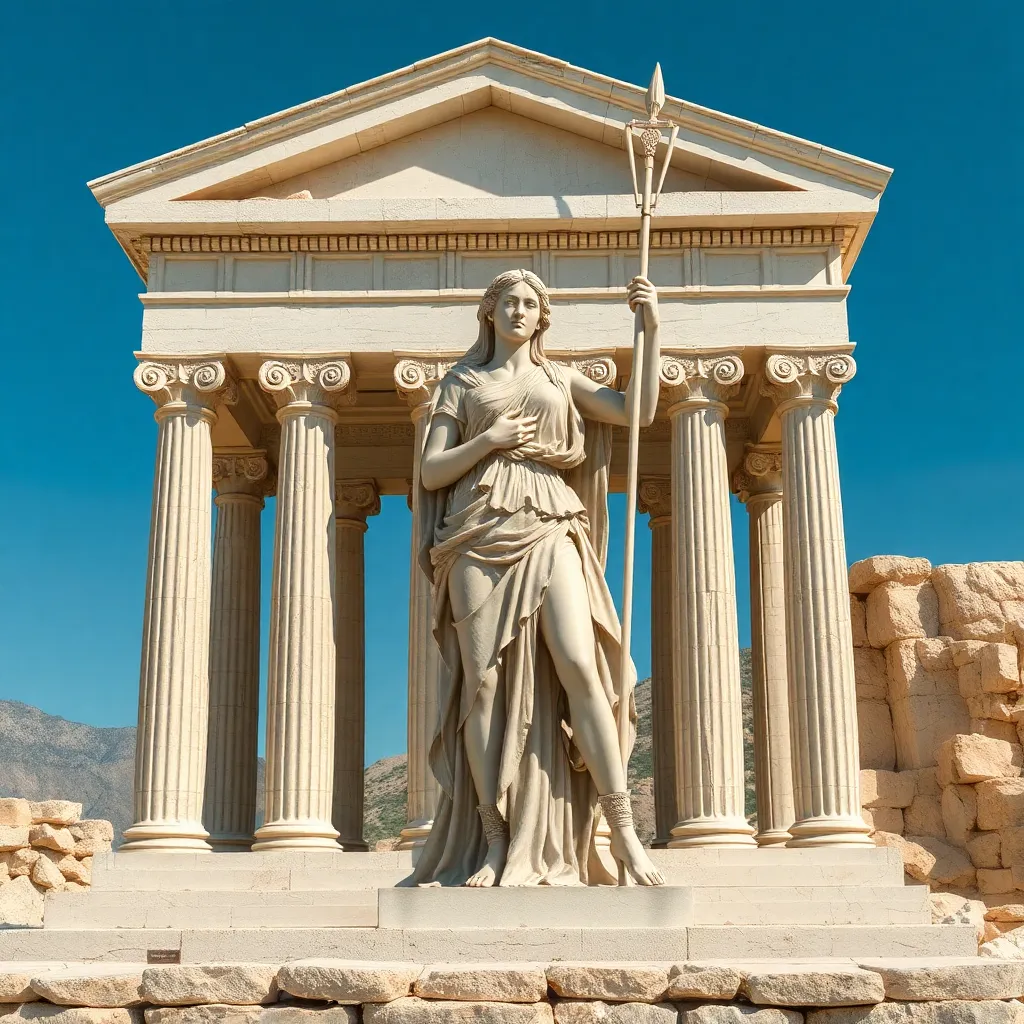Athena and the Concept of Cultural Heritage in Ancient Greece
I. Introduction
Cultural heritage encompasses the traditions, customs, and artifacts that are inherited from previous generations. It serves as a collective memory for communities, shaping their identity and values. In Ancient Greece, cultural heritage was profoundly influenced by deities, particularly Athena, the goddess of wisdom and war. Her significance extended beyond mythology into the realms of art, education, and civic identity, making her a pivotal figure in the cultural landscape of Ancient Greece.
This article explores the multifaceted role of Athena in Ancient Greek culture, examining her influence on various aspects of life and how she embodies the concept of cultural heritage.
II. Athena: The Goddess of Wisdom and War
Athena, often referred to as Pallas Athena, was one of the twelve Olympian deities and was revered as the goddess of wisdom, warfare, and strategic skill. According to mythological accounts, she was born fully grown and armored from the forehead of her father, Zeus, symbolizing her association with intellect and strength.
Her attributes and symbols include:
- Owl: Representing wisdom and knowledge.
- Aegis: A protective cloak often depicted with the head of Medusa.
- Olive Tree: Symbolizing peace and prosperity.
Athena played a crucial role in many mythological narratives, including the Trojan War, where she supported the Greeks and was involved in the judgment of Paris. In society, she was a guiding force for heroes, embodying the ideal of rational thought combined with martial prowess.
III. Athena as a Patroness of the Arts and Crafts
Athena’s influence on artistic expression in Ancient Greece was profound. She was known as the patroness of various crafts, including weaving, pottery, and metalwork. Her guidance not only elevated the quality of craftsmanship but also imbued artistic endeavors with cultural significance.
Some of the key areas where Athena’s patronage was evident include:
- Weaving: Athena was credited with teaching women the art of weaving, which was vital for both domestic life and artistic expression.
- Architecture: Many temples and public buildings were designed with her in mind, reflecting her importance in civic identity.
- Sculpture: Numerous statues and reliefs were dedicated to her, showcasing her revered status in society.
Examples of artwork and architecture dedicated to Athena include the magnificent sculptures on the Parthenon and various pottery pieces illustrating her mythological tales.
IV. The Parthenon: A Symbol of Athenian Identity
The Parthenon, located on the Acropolis of Athens, stands as one of the most iconic monuments of Ancient Greece. Constructed between 447 and 432 BC, it was dedicated to Athena Parthenos, the virgin goddess. The historical context of the Parthenon reflects a period of Athenian prosperity and political power following the Persian Wars.
The architectural significance and artistic features of the Parthenon include:
- Use of Doric and Ionic architectural styles, showcasing innovation in design.
- Elaborate friezes and sculptures that depict mythological battles and religious ceremonies.
- The grand scale of the temple, which emphasized the importance of Athena to the Athenian people.
As a manifestation of Athenian cultural heritage, the Parthenon represented not only religious devotion but also civic pride and identity, symbolizing the values of democracy, art, and philosophy that characterized the city-state.
V. Festivals and Rituals in Honor of Athena
Key festivals such as the Panathenaea were held in honor of Athena, celebrating her significance to the city of Athens. This festival included athletic competitions, religious ceremonies, and cultural performances, fostering a sense of unity among the citizens.
The cultural practices associated with these festivals had profound implications for heritage, including:
- Reinforcement of community identity and social cohesion.
- Preservation and transmission of cultural values through oral traditions and performances.
- Celebration of artistic expression and innovation.
The role of festivals in fostering community identity cannot be overstated, as they served as a platform for honoring the goddess and reinforcing the shared values of the Athenian populace.
VI. Athena’s Influence on Philosophy and Education
Athena’s connection to the development of philosophical thought in Ancient Greece is significant. She was often associated with wisdom and rational thought, influencing thinkers such as Socrates, Plato, and Aristotle. Her presence in philosophical discourse emphasized the importance of knowledge and ethics in governance and society.
Athena also played a pivotal role in promoting education and intellectual pursuits, as she was seen as a guide for scholars and educators. This legacy of intellectualism laid the groundwork for Western philosophical thought and education systems.
VII. Modern Interpretations of Athena and Cultural Heritage
Athena’s impact on contemporary views of cultural heritage is evident in various fields such as art, literature, and politics. Her image and symbolism continue to inspire modern artists and writers, reflecting themes of wisdom, strength, and justice.
Some of the modern interpretations of Athena include:
- Representation in feminist literature as a symbol of female empowerment.
- Inspiration for political movements advocating for justice and equality.
- Depictions in modern art that explore themes of wisdom and creativity.
The relevance of Athena in current discussions on heritage preservation highlights the ongoing importance of cultural icons in shaping societal values and identity.
VIII. Conclusion
Athena’s significance in Ancient Greek cultural heritage is profound and multi-dimensional. She embodies the ideals of wisdom, strength, and artistic expression, representing the values that defined Athenian society. Her legacy has endured through the ages, influencing not only Ancient Greece but also the foundations of Western culture.
As we reflect on the enduring legacy of Athena, it is essential to recognize the intricate relationship between mythology and cultural identity, reminding us of the importance of preserving our shared heritage for future generations.




